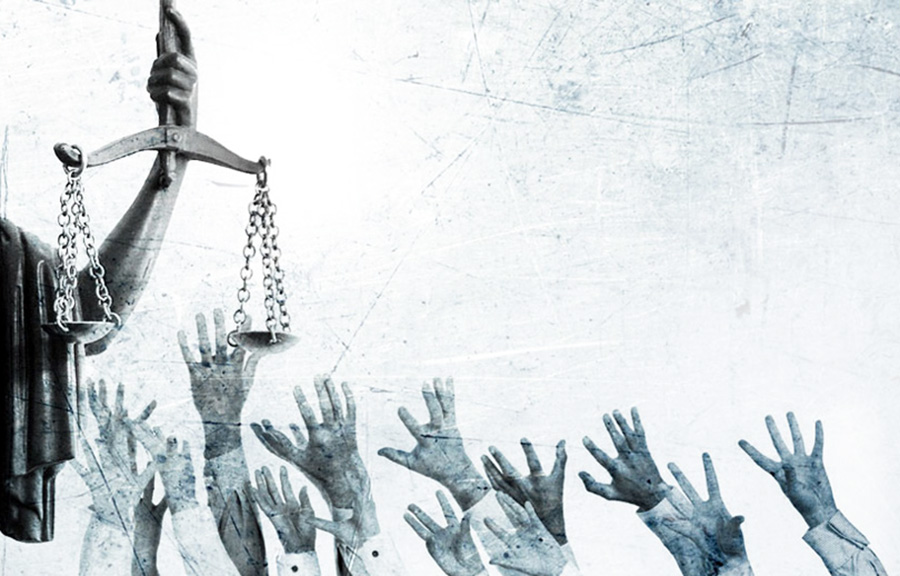
Preventive transitional justice, peace and sustainable development
Prevention is high on the list of priorities in the Global Policy Plan on Peace, Development and Good Governance. The plan recognizes the value of preventive transitional justice, which not only helps societies avoid the recurrence of gross human rights violations, but also addresses the common drivers of violence and conflict, including exclusion, fragility and inequality.
Transitional justice has always included prevention at the top of its objectives. In Argentina, for example, the concept of "no repeat" was an integral part of the work of the National Commission on Invisible Persons. More broadly, during the 1990s and the first decade of the present century, the United Nations Principles against Impunity urged societies in transition to take specific steps to ensure that gross human rights violations do not recur. It is recognized that different elements of justice, such as truth, accountability, equity and reform, would help societies avoid repeating past mistakes.
Today, prevention is high on the list of priorities within the global policy agenda, including among United Nations-style actors, as well as frameworks such as the Sustainable Development Goals and the Joint United Nations Plan. This plan has repeatedly recognized the value of preventive transitional justice in addressing the common drivers of violations and violence, such as exclusion, fragility and inequality. In 2004, for example, in his report on transitional justice and the rule of law, the Secretary-General of the United Nations categorically asserted that "prevention is the first imperative of justice" in the issues of peace and stability. In 2016, both the Security Council and the General Assembly reiterated this message in the resolutions adopted on the sustainability of peace.
Peace operations
During peace processes, the parties should be alerted to fundamental questions about how to deal with gross and flagrant human rights violations committed during a violent conflict. While demands for justice often fall within the most complex and controversial elements of negotiations, addressing such violations, in particular attention to victims visions and needs, is essential to ensuring that peace agreements are given the necessary reliability and legitimacy.
Peace processes and political negotiations aimed at ending a violent conflict should always deal with past human rights violations. In the peace processes that ended the wars in Guatemala, South Africa, El Salvador, Sierra Leone and Colombia, as well as in the ongoing negotiations in countries such as Libya, South Sudan, Syria, Venezuela and Yemen, transitional justice has imposed itself a matter of paramount importance.
Peace operations raise fundamental questions about how the Peace Agreement addresses the legacy of gross and flagrant human rights violations committed during the conflict. Among them is the question of the type of justice that can be achieved, the treatment that victims must be accorded, the nature of appropriate criminal accountability, equity and reform processes, as well as the question of the balance and complementarities required between justice, security and sustainable peace.
Demands for justice often fall into the most complex and controversial elements of peace negotiations. However, addressing past attacks and attention to victims visions and needs is essential to ensure that peace processes and their agreements are given the necessary credibility and legitimacy. The frameworks established under the peace agreements would also determine the nature and extent of possible transitional justice measures for years or decades to come.
Sustainable Development Goals
Countries and groups that have suffered grave human rights violations face significant challenges to their achievement of sustainable development. Transitional justice deals with these violations and addresses their grave consequences, thereby enabling them to advance societys development by making them more peaceful, inclusive and equitable.
The 2030 Agenda for Sustainable Development is one of the most important international policy frameworks ever. In 2015, the United Nations General Assembly adopted the Sustainable Development Goals, a set of global goals and objectives that constitute an "action plan" for world peace and prosperity. While focusing on the economic, social and environmental components of sustainable development, these goals also contribute to defining global discourse, goals and priorities in a wide range of different fields.
The 2030 Agenda, on which human rights are ignored, does not explicitly refer to human rights violations or efforts to address their legacy. Societies that have suffered serious violations face particular and significant challenges that impede their progress towards sustainable development goals. With enormous numbers of victims, divided groups, widespread injustices, weak institutions, lack of trust and resource depletion, these countries are unable to approach development to countries that have not suffered a similar shock. Victims, who are mainly among the poorest and most marginalized groups of society, have access to justice is extremely complicated by the normative approaches adopted in building institutional capacity and reducing poverty.
The Sustainable Development Goals (SDGs) do not make any reference to transitional justice, but contain many goals and objectives that transitional justice can contribute to. For example, the objectives of the sixteenth sustainable development goal include strengthening the rule of law and improving access to justice, reducing violence and establishing inclusive institutions and fighting corruption, while the objectives of the fifth sustainable development goal focus on promoting gender equality, and the tenth sustainable development goal aims at reducing wider inequality. In transitional justice contexts, these purposes are excluded from sustainable realization unless the pasts grave violations are effectively addressed.

